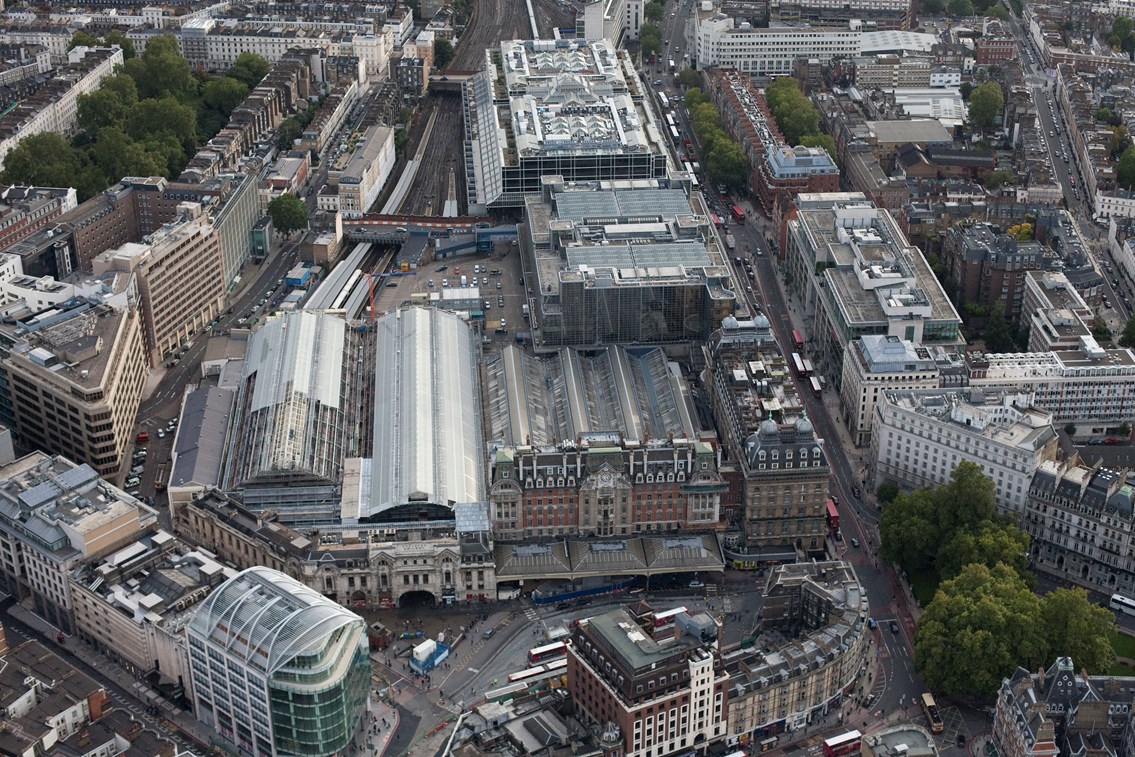Tuesday 30 Jun 2020
London Victoria takes aim at hitting 85% recycling target
- Region & Route:
- Southern
Britain’s second busiest railway station has started a trial aiming to recycle 85% of all waste created on the site.
Network Rail’s London Victoria is working with train operators and waste specialist The Green Block, to take the number one spot for recycling on Britain’s railway with a six-month trial.
A unit set up at the station will take all contaminated rubbish from across the site, including from; trains, public bins, retailers and offices, and segregate it, wash it, compact it, bale it, weigh it, electronically tag it and then store it ready for collection and recycling.
The aim is to recycle 85% of the waste generated by the station and its users.
Nicole Cohen-Wray, stations director for Network Rail Southern region, said: “We’re really excited about this trial and this is a big opportunity to reduce our environmental footprint. All scheduled trains that use our station are electric, but we know it’s not enough just to provide environmentally-friendly transport – that would be too easy! We’re doing everything we can with our colleagues at Southeastern and GTR to make our station sustainable, and a green ambassador for the railway.”
Adam Williams, co-founder and head of transformation for The Green Block, said: “We are absolutely delighted to be supporting Network Rail in this innovative management of waste trial. The project has been planned for many months and seeing the project rolled out at one of the largest transportation hubs within the UK, is a fantastic achievement. Together we are going to change the culture and behaviours towards the management and recycling of waste.”
An example of the ‘journey’ waste will take at London Victoria:
- A plastic bottle is purchased from a retail shelf and the contents are consumed, leaving an empty plastic bottle as waste.
- The plastic bottle is disposed of in a bin
- Bins are emptied and transferred to the Mobile Segregation Unit (MSU) for manual segregation.
- The plastic bottle is cleaned, baled, weighed and secured in preparation for collection.
- Plastic waste bales are collected and transported to a recycling partner.
- The plastic is then shredded, washed, melted and reshaped, before being sold to a plastic bottle manufacturer.
- The used plastic bottle is once again a plastic bottle.
The trial began on Sunday, 28 June, and continues until December. The results will then be evaluated to see how much waste at Victoria has been recycled.
Contact information
Passengers / community members
Network Rail national helpline
03457 11 41 41
Latest travel advice
Please visit National Rail Enquiries
Journalists
Leonard Bennett
Leonard.Bennett@networkrail.co.uk
About Network Rail
We own, operate and develop Britain's railway infrastructure; that's 20,000 miles of track, 30,000 bridges, tunnels and viaducts and the thousands of signals, level crossings and stations. We run 20 of the UK's largest stations while all the others, over 2,500, are run by the country's train operating companies.
Usually, there are almost five million journeys made in the UK and over 600 freight trains run on the network. People depend on Britain's railway for their daily commute, to visit friends and loved ones and to get them home safe every day. Our role is to deliver a safe and reliable railway, so we carefully manage and deliver thousands of projects every year that form part of the multi-billion pound Railway Upgrade Plan, to grow and expand the nation's railway network to respond to the tremendous growth and demand the railway has experienced - a doubling of passenger journeys over the past 20 years.
Follow us on Twitter: @networkrail
Visit our online newsroom: www.networkrailmediacentre.co.uk

